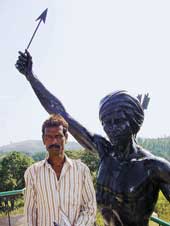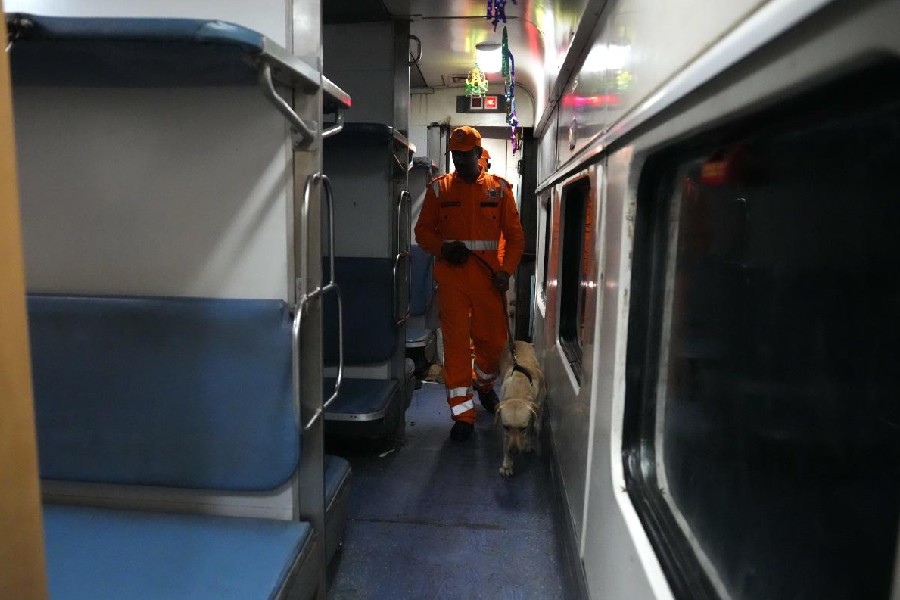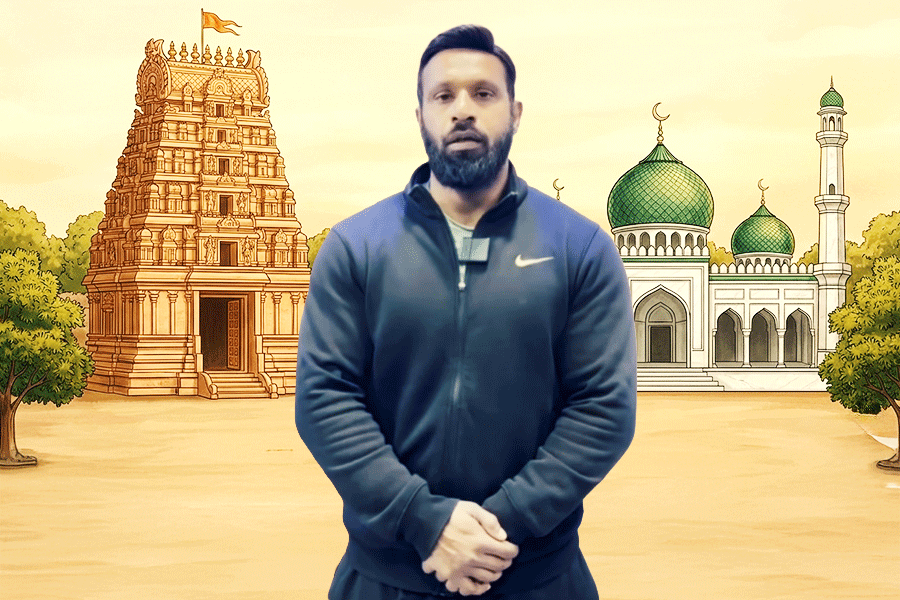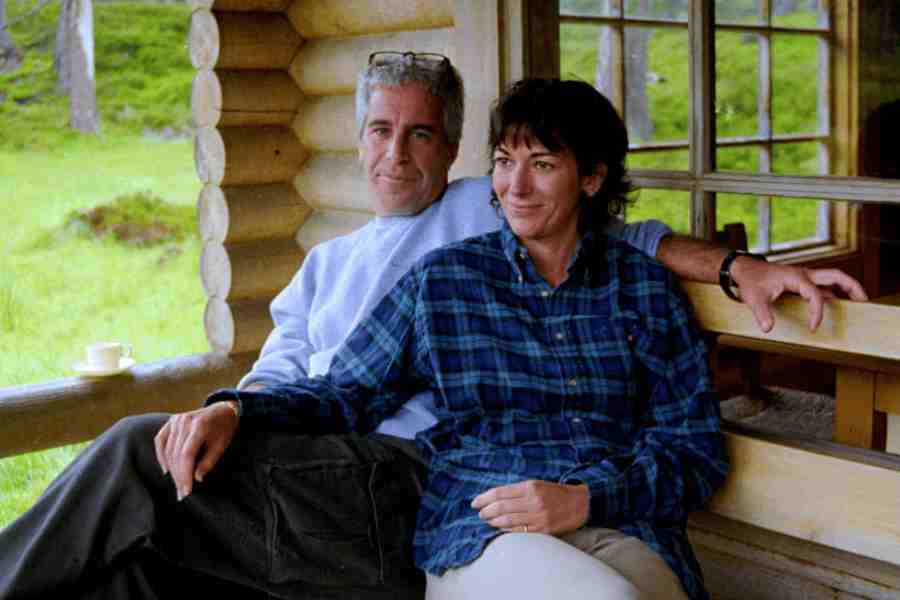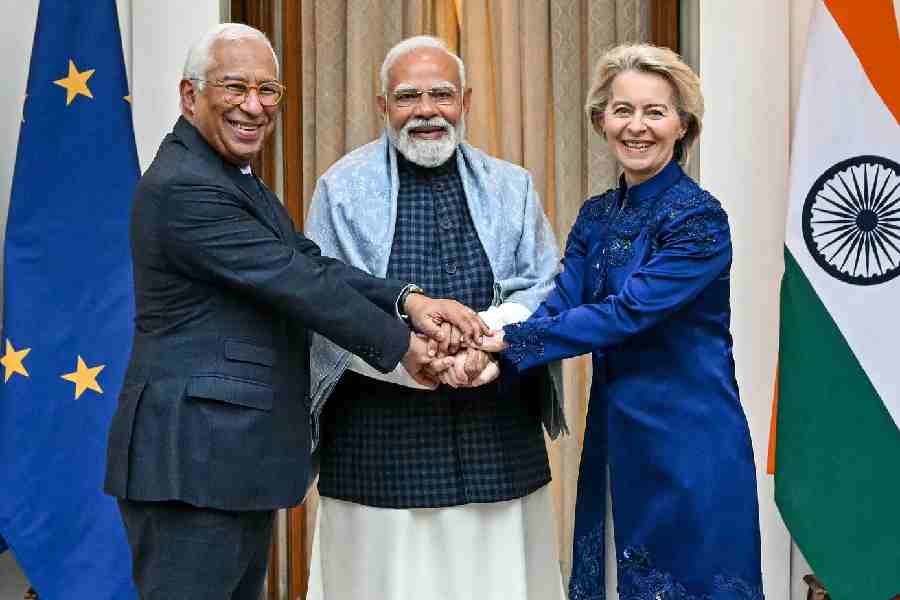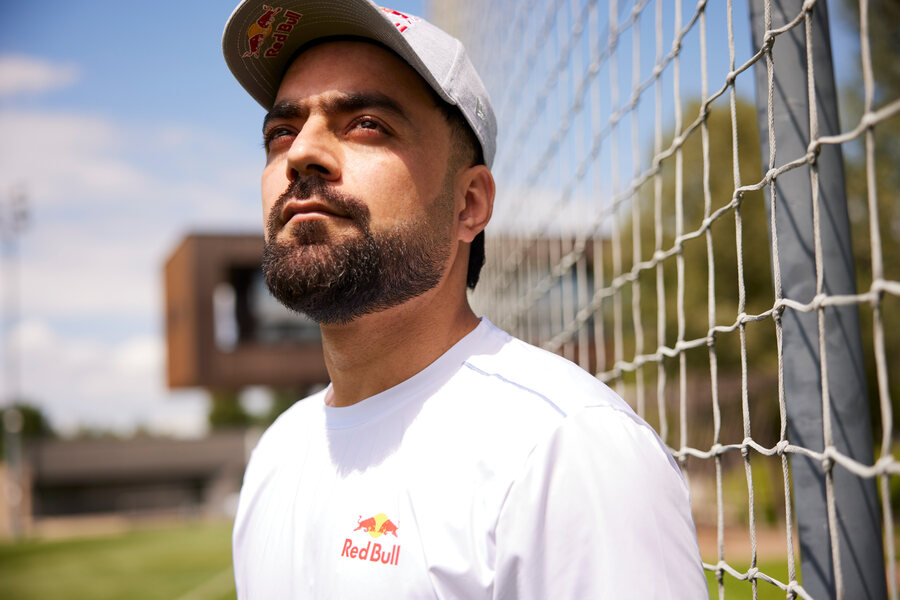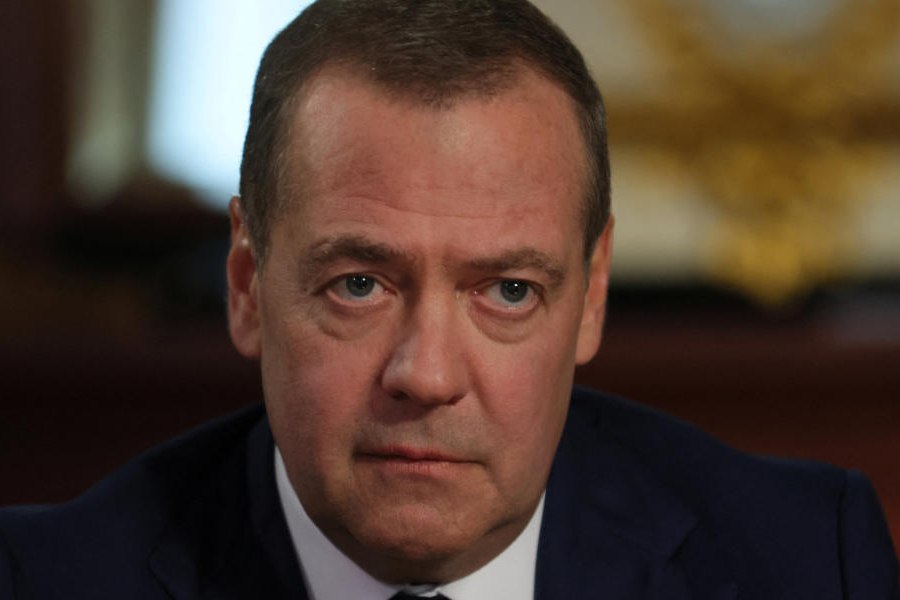 |
| Bishu Munda in front of Birsa Munda’s statue at Dombari Buru. Picture by Prashant Mitra |
“There is going to be a fight with the Dikus. The ground would be as red as the red flag with their blood.” So said Dharti Aba Birsa Munda on the Christmas eve of 1899 before his Ulgulan (rebellion) against the British.
The hills of Dombari Buru turned red with blood. Just before the battle, Birsa and his men danced on the hilltop for hours, celebrating the glory of their disom (country), flush with the confidence of victory.
The ancestors of Bishu Munda fought valiantly. Repulsing the British sniper shots with their bows and arrows, they fought till the end.
The British did not keep count. Birsa’s belief that the bullets would turn to water upon touching his men’s bodies did not come true. But history was written, sowing the seeds of the Jharkhand movement and the birth of a new state 100 years later.
Birsa would have turned 128 tomorrow. Bishu is only 43. And shattered for life. Bishu and his two brothers donated 75 decimal of land at the base of the Dombari Hills to the then Bihar government for a memorial in Birsa’s honour. Quick to “grab” Bishu’s “khuntkatti” tract, the government promised him a job in return. The job of a night watchman to keep a vigil on the tribal icon’s imposing statue.
Bishu and Kupu Singh Munda of Jojohatu were “temporarily” appointed watchmen in August 1990 on a monthly payment of about Rs 1,000. The arrangement continued till November 1996 after which the payment suddenly stopped. Bishu approached the Ranchi deputy development commissioner, who, in turn, wrote to the Khunti circle officer to pay him because the district board was almost bankrupt.
Bishu is still waiting for his money, not knowing that the government has no intentions of doing so. Khunti block development officer Vinod Kumar Paswan told The Telegraph: “There were some noises about this man’s case when a new structure was inaugurated early this year. But to my knowledge, nothing is happening for the redressal of his problem.”
Bishu does two things now: keeps a constant vigil on his bhagwan’s place and work as a labourer to build a boundary wall at the memorial site. He is in a tearing hurry. So are his fellow workers. “We must complete the wall before January 9 when big people will come for the annual fair held to commemorate the Ulgulan. They will make speeches glorifying Birsa, my bhagwan. If I do a good job, the Mundas of the area will benefit. We, as hosts, must give a warm welcome to the mela revellers,” says Bishu, a father of three.
“They tell me that Jharkhand has been formed and some Marandi is the new king. I know they will celebrate Birsa’s birthday two days later. But why is no one coming to Dombari? This place needs to be improved. The people of the villages around the hills need help. Two years ago, three people would die of malaria every day. This time the deaths were less. We need a doctor. Khunti is far off and travelling in a bus costs Rs 8. We are Birsa’s people. Someone should do something,” he adds.
Elderly Bahanu Assa is Bishu’s co-worker. He agreed to guide The Telegraph team to the hill-top where a stone pillar commemorates the battle. The pillar is located almost 80 metres away from the memorial. “The city-breds huff and puff while climbing. We carried the stones on our shoulders to the top. Birsa was the moving spirit. We keep his pictures in our houses. So what if big people come here only once a year? We will not let anything happen to the pillar and the statue. Don’t you protect your god’s idols?” asks Assa.
The frail tribal reveals a bit of the unchronicled history of the Ulgulan. “Among the people who danced with Birsa was a lactating mother. She succumbed to a British bullet and fell on the hill. The baby was playing on her body, waiting to be fed. Some Angrez sahib saw the baby through his doorbin (binoculars). He took the child away, perhaps to his disom. When the boy grew up, he got a job,” says Assa.
Bishu was also locked in a court case when he protested against two boys demanding rangdaari (extortion) from him at the memorial. The smart youths had lodged an FIR against him. Bishu would not relent under pressure but a compromise was effected. The case is now over. But Bishu is determined to fight for his right. Even today, the spirit of Birsa inspires them never to give up. Bishu’s ancestors have been fighters. They, too, have contributed to the birth of Jharkhand.

